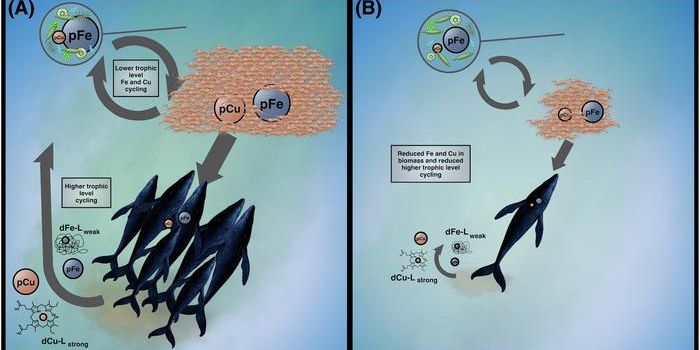First manufactured non-cuttable material is modeled after mollusk shells
A new material named after the shape-changing Greek god Proteus boasts the title of the first-ever manufactured non-cuttable material. Unable to be cut by angle grinders, drills, or high-pressure water jets in test experiments, the Proteus material is modeled after the structure of shells and grapefruits. A report of the study’s findings is published in the journal Scientific Reports.
Proteus is composed of ceramic spheres encased in a cellular aluminium structure and takes inspiration from the tough cellular skin of the grapefruit and the fracture-resistant shells of mollusks, says the team of researchers from Durham University, UK, and Fraunhofer Institute for Machine Tools and Forming Technology IWU in Chemnitz in Germany. It is lightweight, durable, and, most noteworthy, uncuttable. Researchers say that it has potential for applications in the security and health and safety industries, ranging from bike locks, lightweight armor, and protective equipment for people who work with cutting tools.
Lead author Dr. Stefan Szyniszewski, Assistant Professor of Applied Mechanics, in the Department of Engineering, Durham University, said: "We were intrigued by how the cellular structure of the grapefruit and the tiled structure of mollusk shells can prevent damage to the fruit or the creatures inside, despite being made of relatively weak organic building blocks. These natural structures informed the working principle of our metallic-ceramic material, which is based on dynamic interaction with the applied load, in contrast to passive resistance.”
In essence, the material works by turning back the force of a cutting tool upon itself in an almost superheroic way. It does so via its evolving internal structure that reacts dynamically to any oncoming force.
"Essentially cutting our material is like cutting through a jelly filled with nuggets. If you get through the jelly you hit the nuggets and the material will vibrate in such a way that it destroys the cutting disc or drill bit,” explained Dr. Szyniszewski.
"The ceramics embedded in this flexible material are also made of very fine particles which stiffen and resist the angle grinder or drill when you're cutting at speed in the same way that a sandbag would resist and stop a bullet at high speed. This material could have lots of useful and exciting applications in the security and safety industries. In fact, we are not aware of any other manufactured non-cuttable material in existence as of now."
The researchers are in the process of patenting Proteus and plan to collaborate with industries to produce products for commercial consumption.
Sources: Scientific Reports, Eureka Alert









